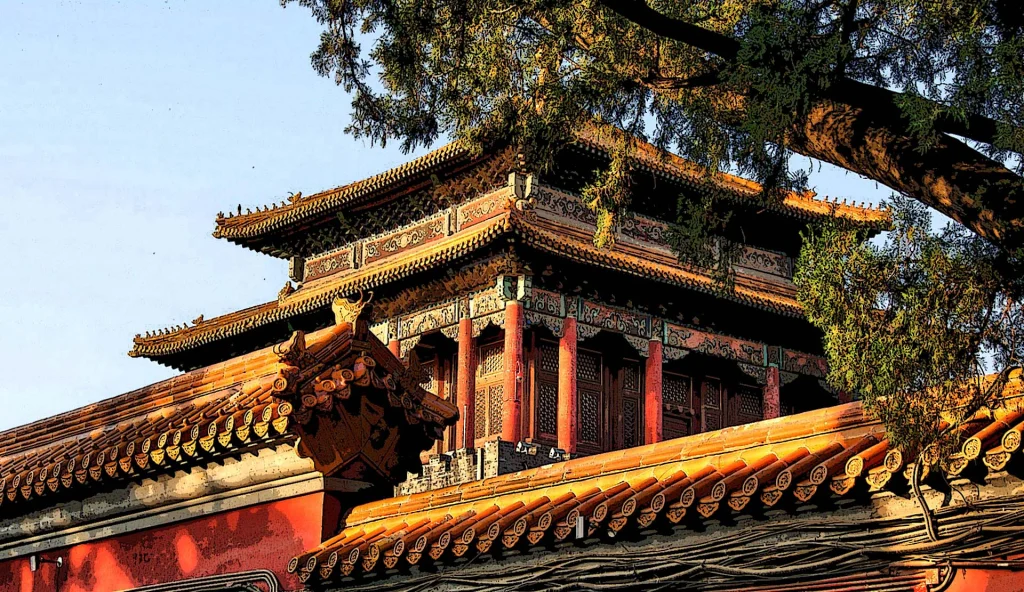
登幽州臺歌
陳子昂
前不見古人
後不見來者
念天地之悠悠
獨愴然而涕下
Ascending Youzhou Tower (Song)
Chen Zi’ang, 696
The Ancients do not see forward and
Those to come do not see the past.
I think of heaven and earth and the vastness of time,
Sad and alone, tearfully crying
Alternate translation:
Where are the wise ones, those of the past
Where are those yet to come
The sky and the earth last forever
As I, sad and lonely, am tearfully crying

Youzhou Tower
Here is an explanation for the poem.
Chen Zi’ang was an advisor to the Empress Zu Wetian.
In 696, the empress sent a Chinese army against the Khitan tribe (today’s Mongolia), and Chen Zi’ang was attached to the command. When the vanguard suffered a devastating defeat, the commander hesitated to renew the attack. Chen Zi’ang proposed sending 10,000 soldiers to attack the Khitans’ camp. This proposal was rejected and Chen Zi’ang demoted.
Chen, it is said, climbed Youzhou Tower (幽州臺). This is an historical reference to the ancient Warring States Period (戰國) and King Zhao of Yan (燕昭王, died 279 BC), who built the Golden Tower (黃金臺). Despite suffering devastating defeats, Zhao was able to conquer his enemies.
He was renown for surrounding himself with wise and brave councilors.
Pinyin
Dēng Yōuzhōu tái gē
Qián bùjiàn gǔrén
hòu bùjiàn láizhě
niàn tiāndì zhī yōuyōu
dú chuàng rán ér tì xià
Notes on Translation
The title — 登, Dēng, ascending 幽州, Yōuzhōu, 臺, tái, tower 歌, gē, song.
Lines 1 and 2. Bùjiàn, 不見, means “to not see” or “not seeing.” Gǔrén, 古人, the ancients, the sages of the past. Láizhě, 來者, comers, those to come. Line 3. Tiāndì, 天地, heaven and earth, the world; YōuYōu, 悠悠, a long, long time, the vastness of time. Line 4. Dú chuàng, 獨愴, sad and alone; tì xià, 涕下 tears falling, or shedding tears.
There is internal rhyme in the characters: Qián bùjiàn and niàn tiāndì, and the repetition of bùjiàn, 不見, not seeing.











